Cancer and fun rarely go together in a sentence but when creativity, curiosity, and a community gather to combine words and images to capture our complicated, cancer-related experiences – it is fun! And healing – even though the topics being explored – death, diagnosis, brutal treatments, and side effects, and countless losses, are heavy and hard -being invited to explore our emotions and express our experiences is exhilarating. I’m grateful I was able to attend the one workshop led by Ziggy’s Wish held late last year online. Their organization’s mission is “Turning Complex Projects into Accessible Stories,” and they are a great team to work with.
For most of my life, I’ve found respite in writing. But it’s been hard to find words since I was diagnosed with ovarian cancer in the summer of 2019. There were the shock and the fear, of course, but also the intense and consuming medical interventions that changed my life, and schedule enormously and immediately and required me to learn a lot about ovarian cancer, cancer treatment, and the seemingly endless treatment-related side effects. I was knee-deep in survival mode and on information overload and that was just a few months before the COVID pandemic complicated life, work, and healthcare.
It was impossible to slow down and center myself enough to reflect back or gain any perspective. I was spending most of my time fighting for my life. So when Ziggy’s Wish invited survivors to create graphic stories, even if we don’t consider ourselves artistic, I signed up for the one-day workshop. Our only task was to combine words and images to capture a moment, a feeling, or an aha in whatever way we wished. There was so much freedom in this format.
I got to think about how cancer treatment had treated me. My graphic story/photo essay is the result. It’s vulnerable to share something that is personal, raw, and in a new-to-me format. But it captures parts of my cancer experience in ways nothing else has so I will. And here is a link to the work of the other participants.
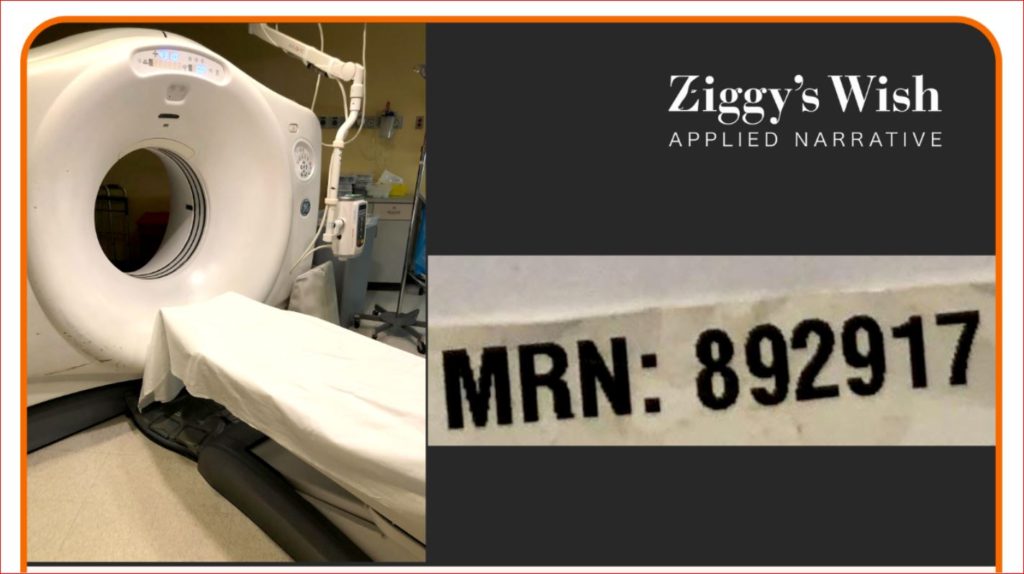
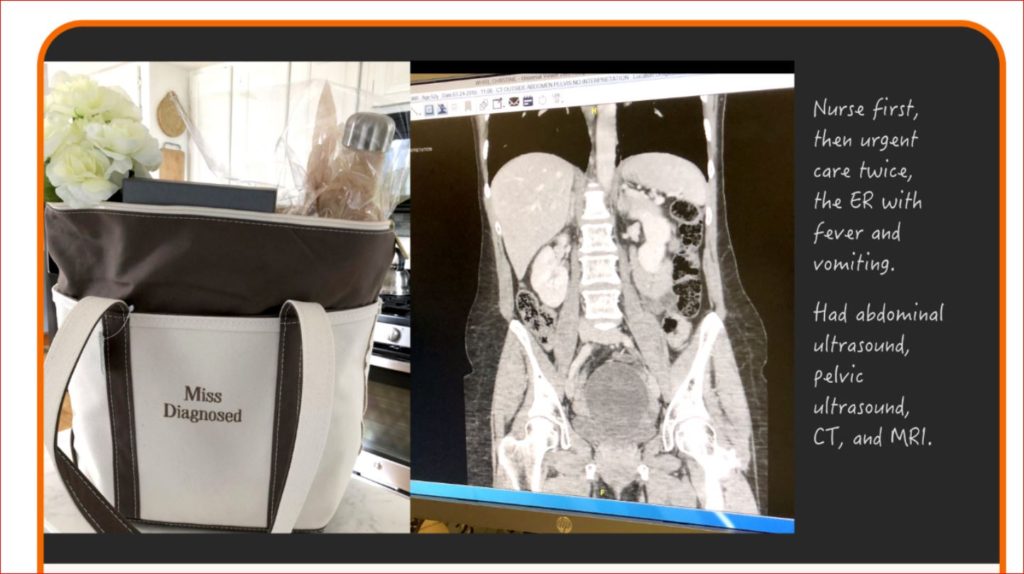
3 ovarian cancer. It had been misdiagnosed as a urinary tract infection, a stomach bug, and a cyst. When people say ovarian cancer is “the silent killer” I want to scream. Women aren’t silent. We present to doctors, nurses, techs, and hospitals and we are not heard or seen. I had imaging which showed a canteloupe-sized tumor that was missed (see above). I said, over and over, “It feels like something is right here” pointing to where I felt pressure and was not listened to, heard, or believed.
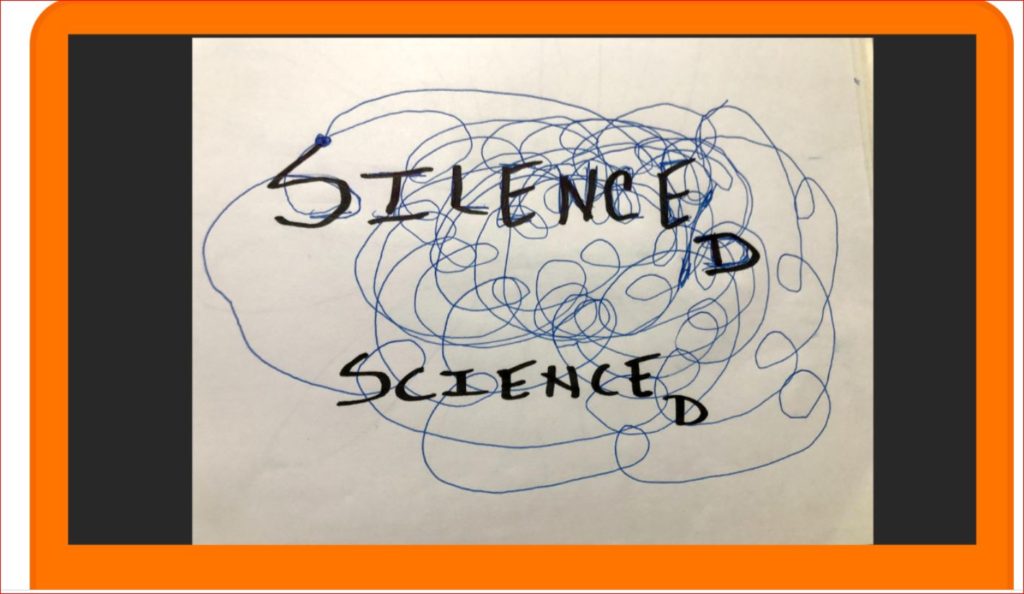
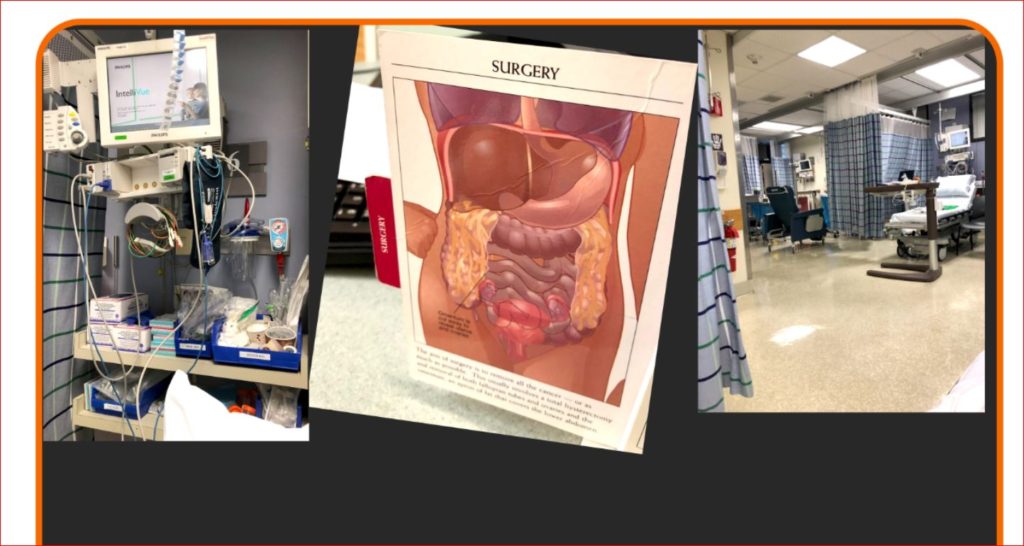
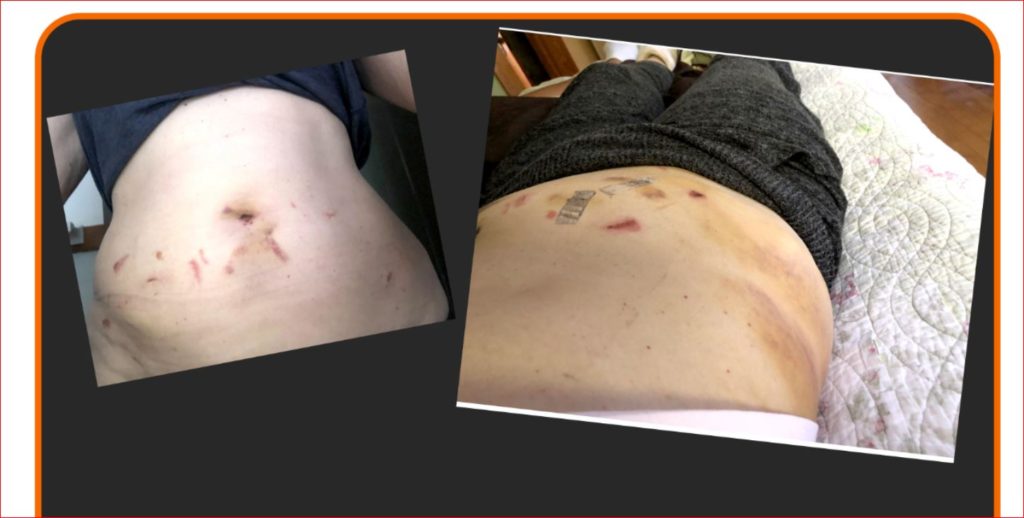
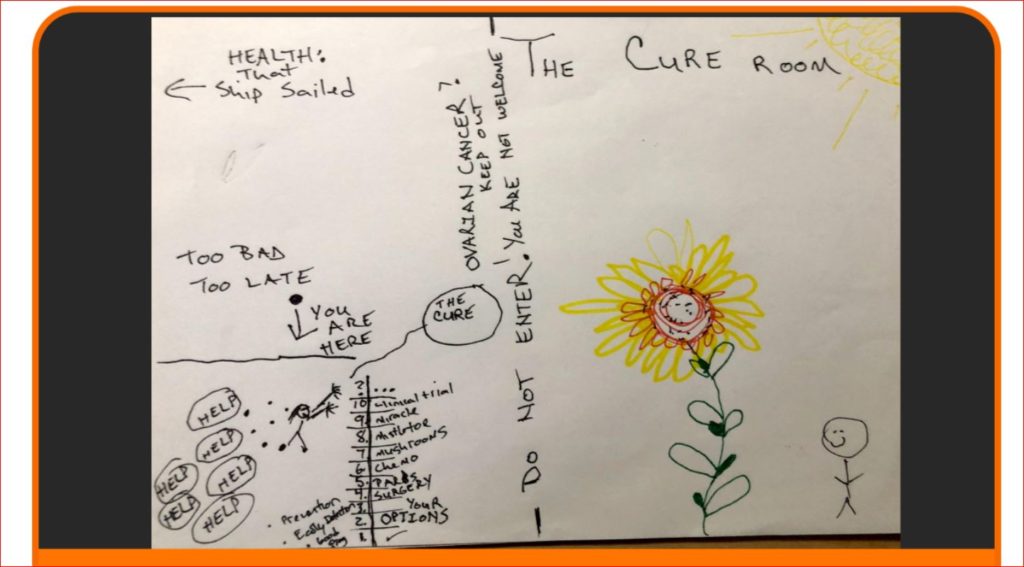
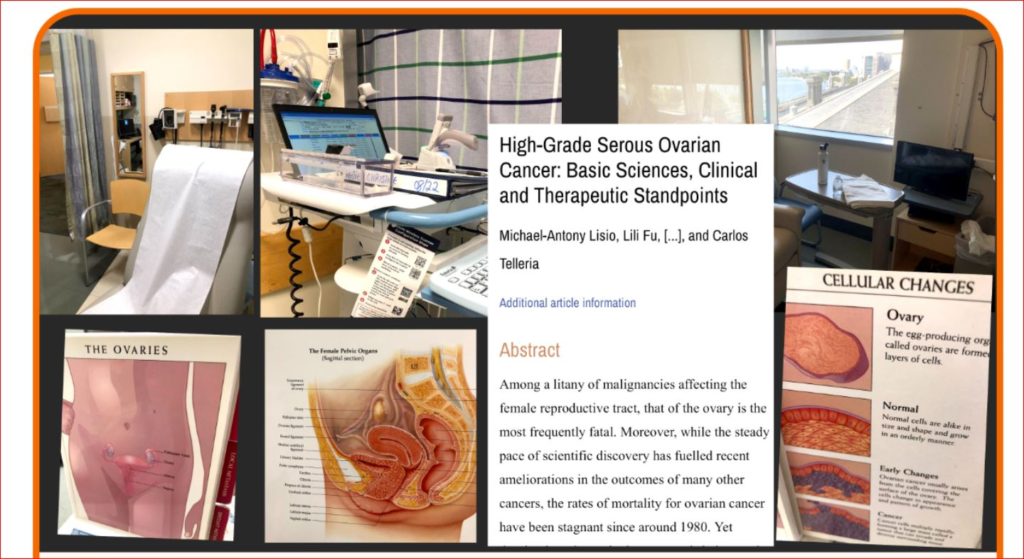
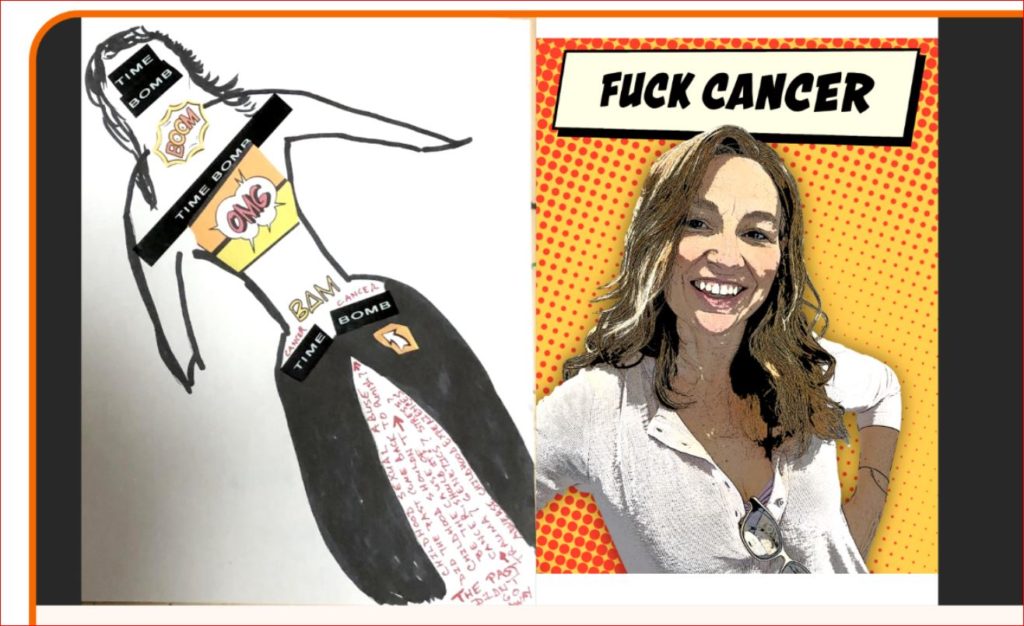
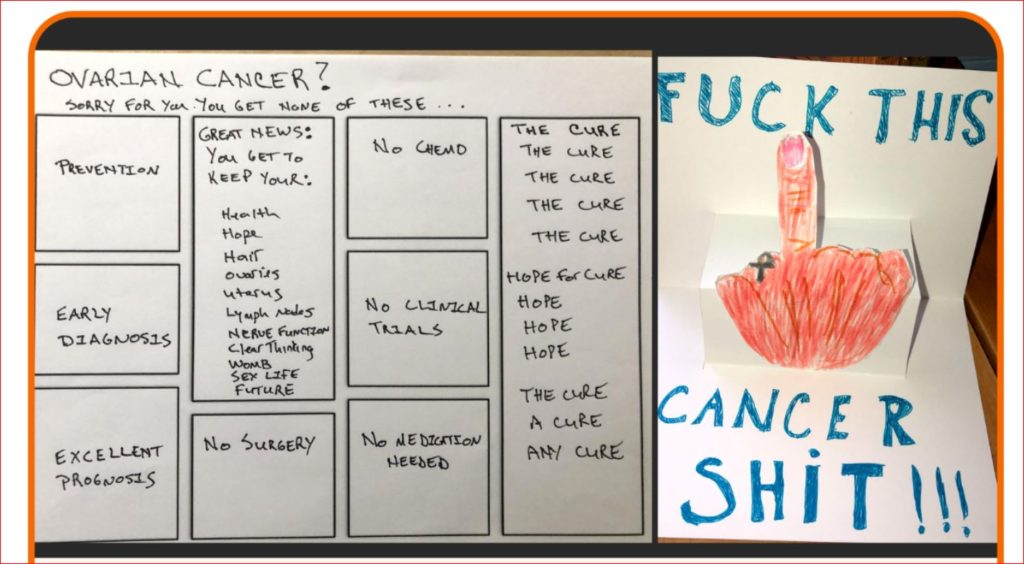
No early detection.
No screening.
Poor prognosis.
85% of the time, after chemotherapy, #ovariancancer “recurs” and becomes incurable..
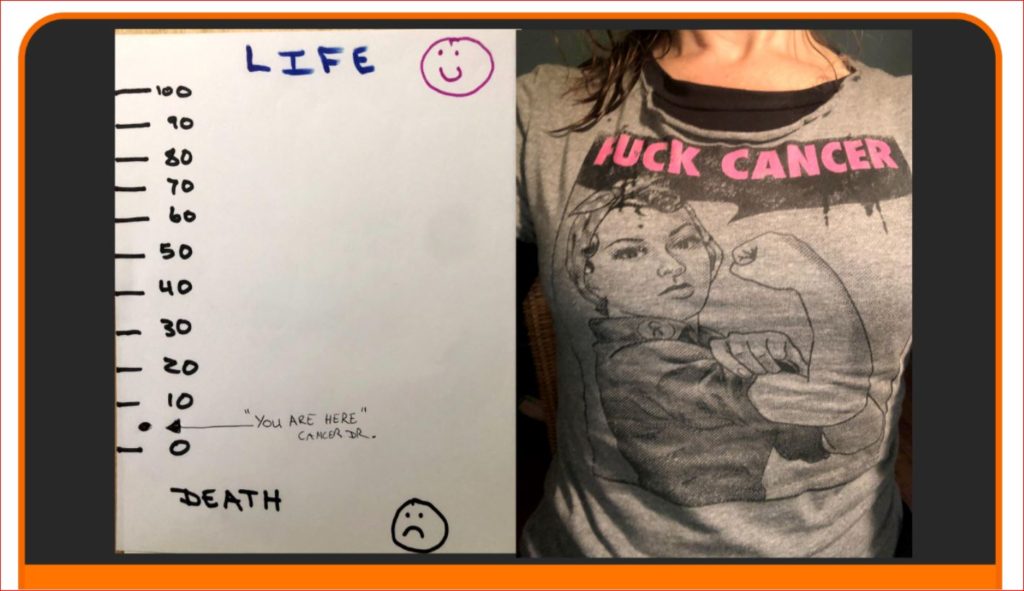
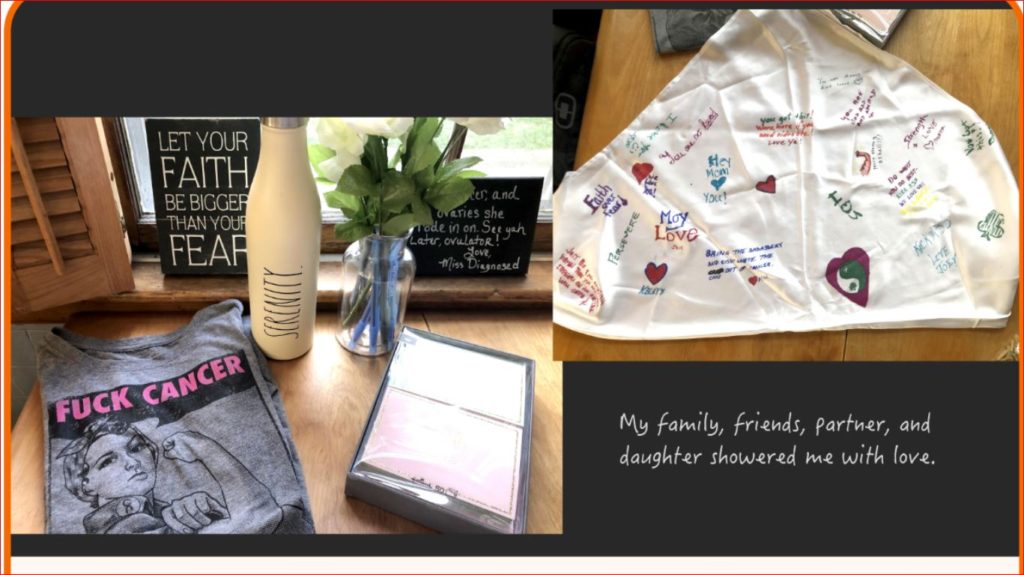
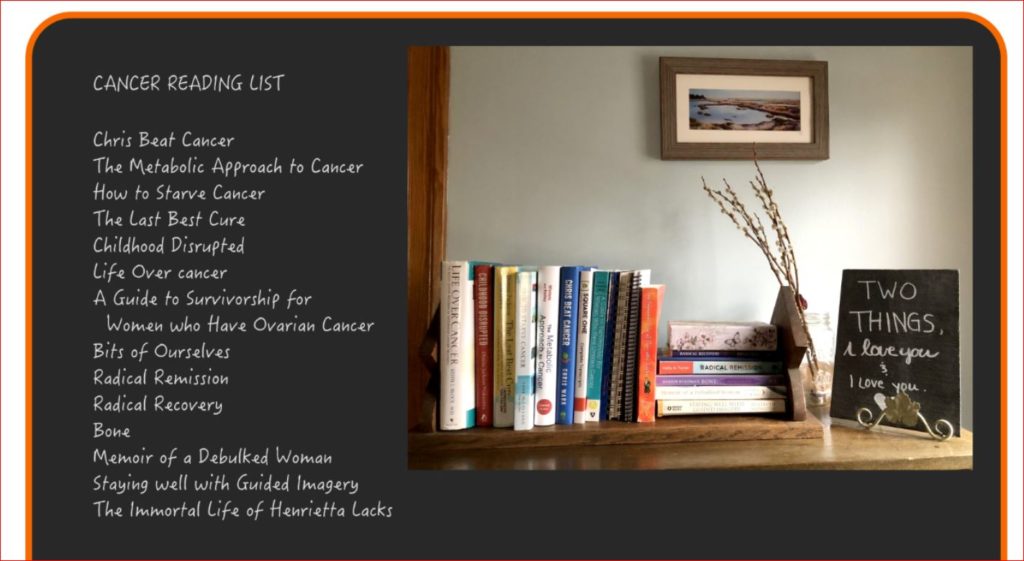
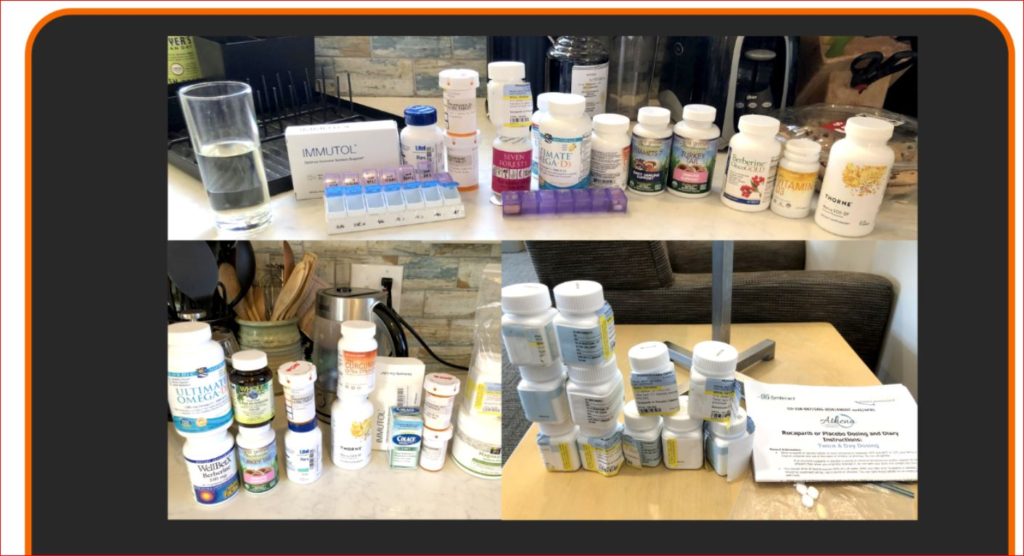
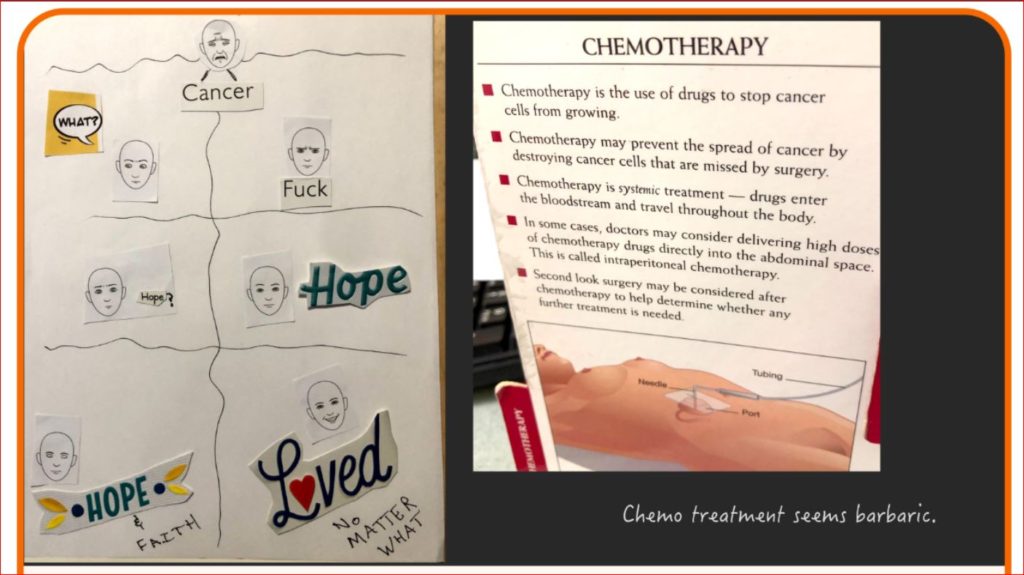
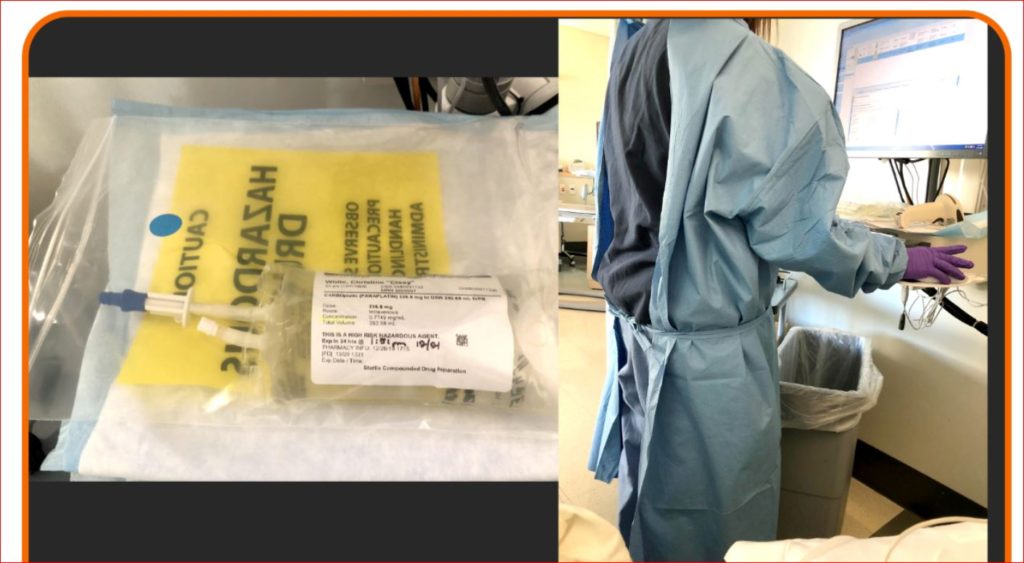
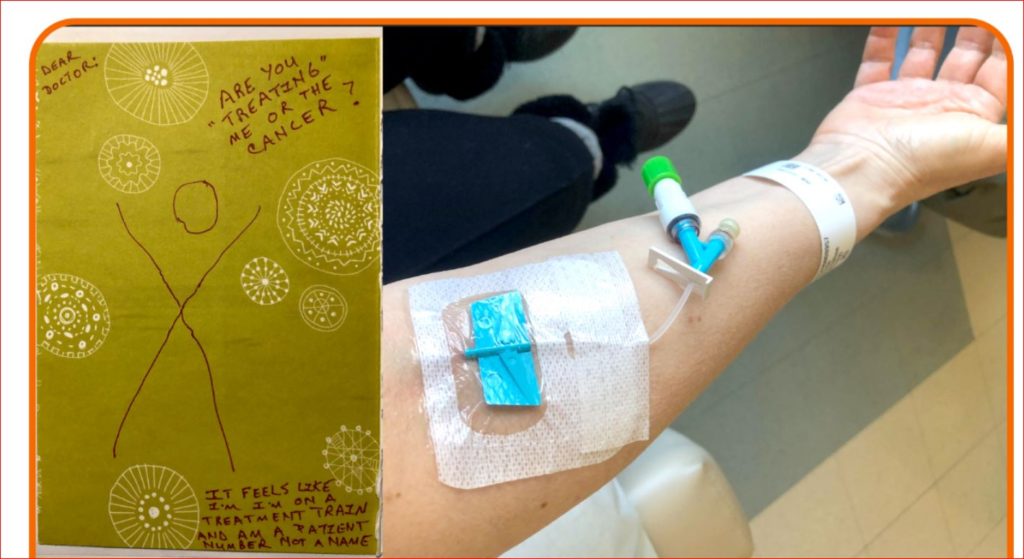
It felt like the cancer was being treated but I wasn’t.
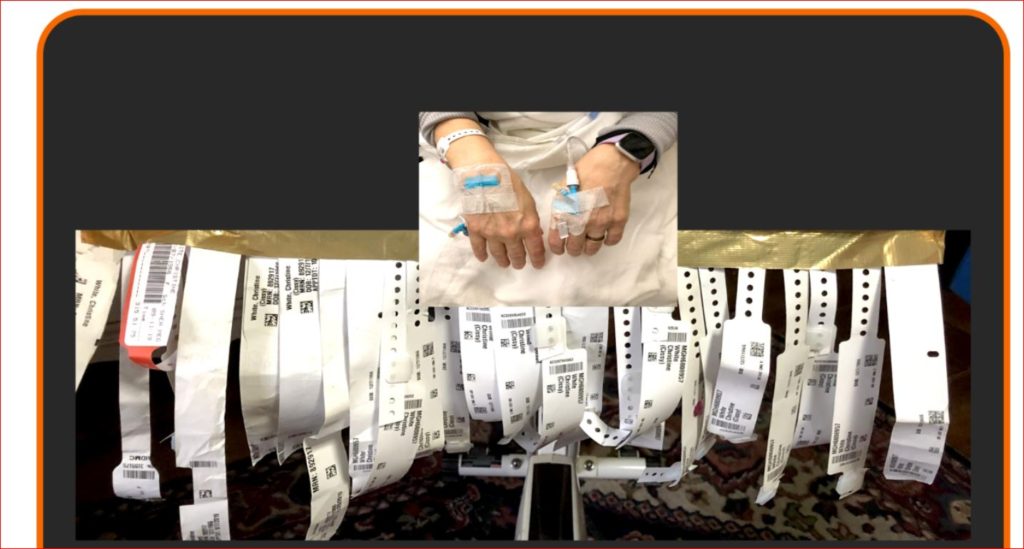
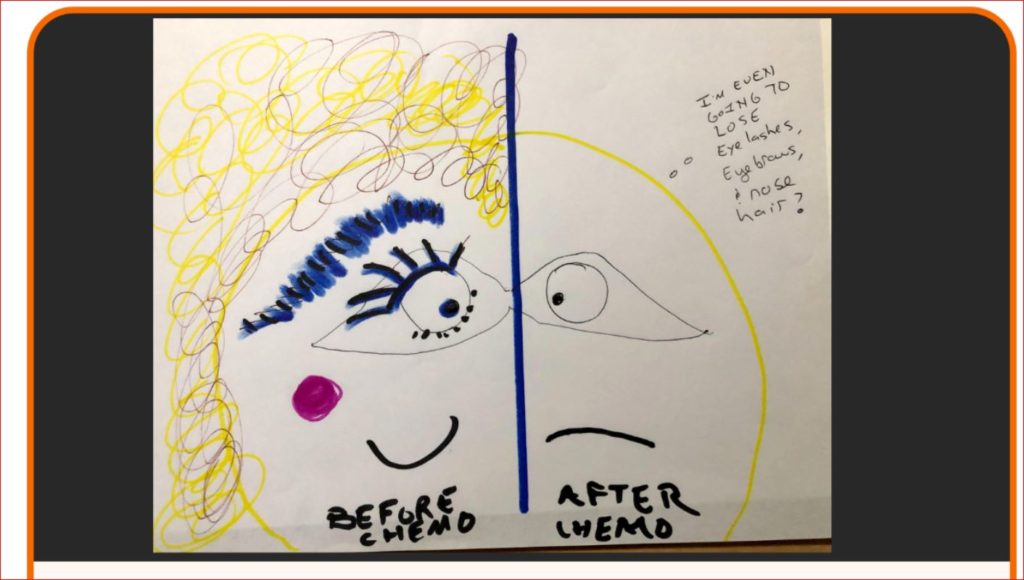
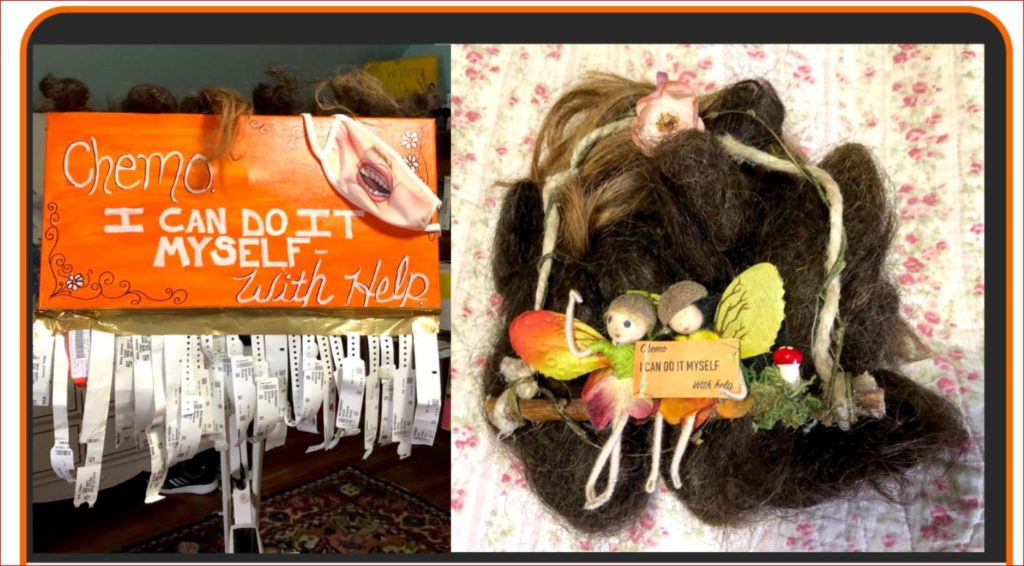
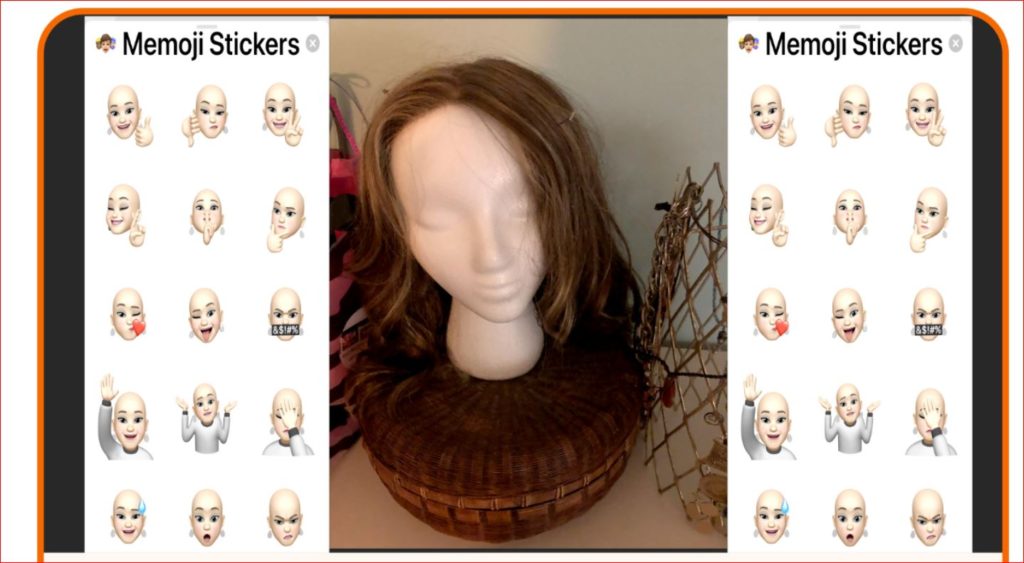
It was hard to be bald and without eyebrows and eyelashes because even strangers looked at me like I might be dying. My aunt sent me the best hat hair wigs from Amazon.
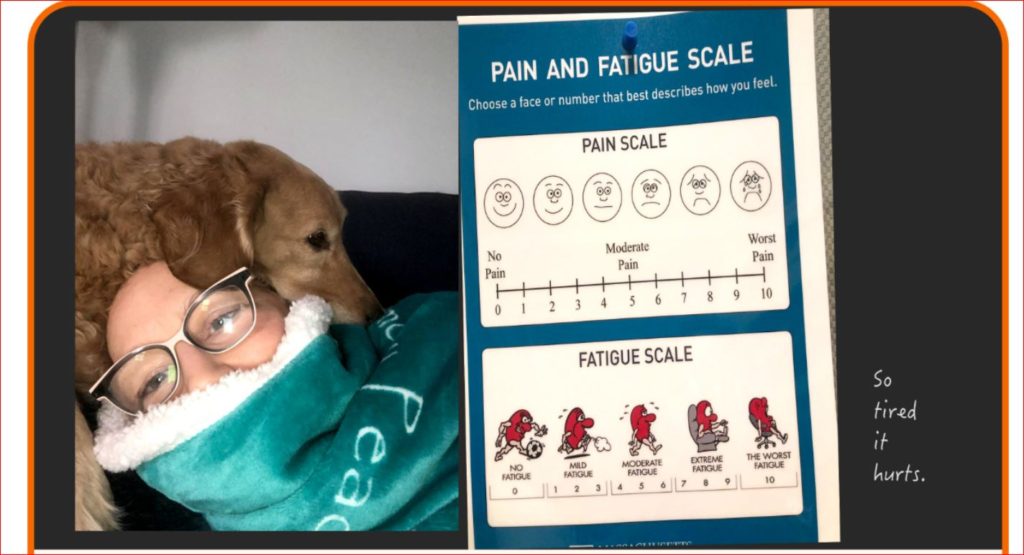
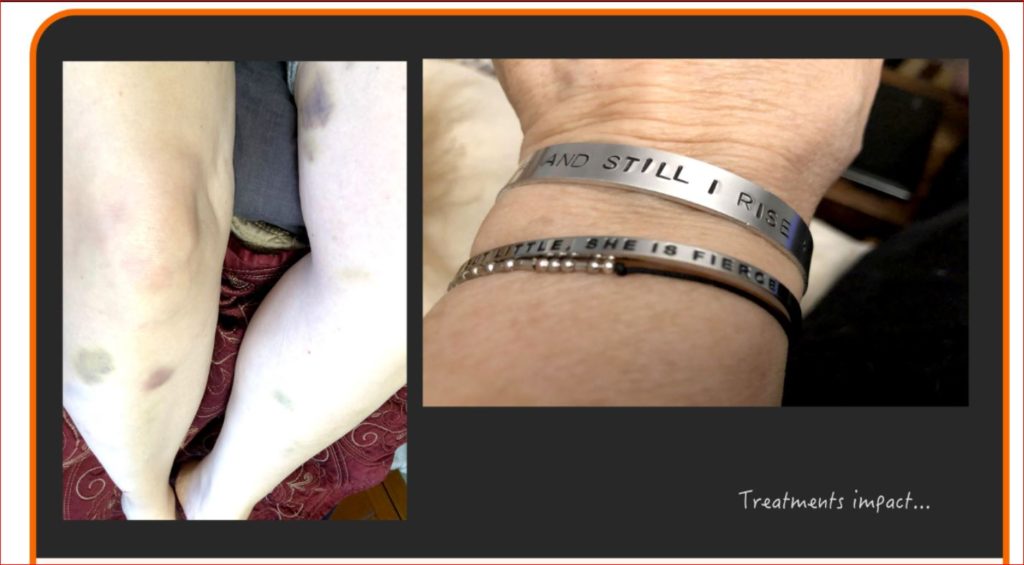
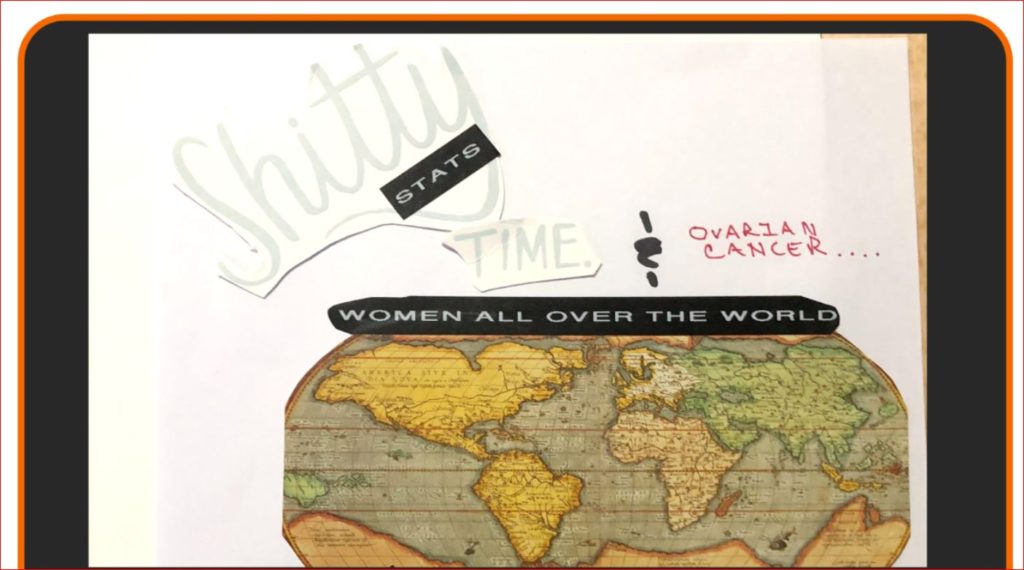
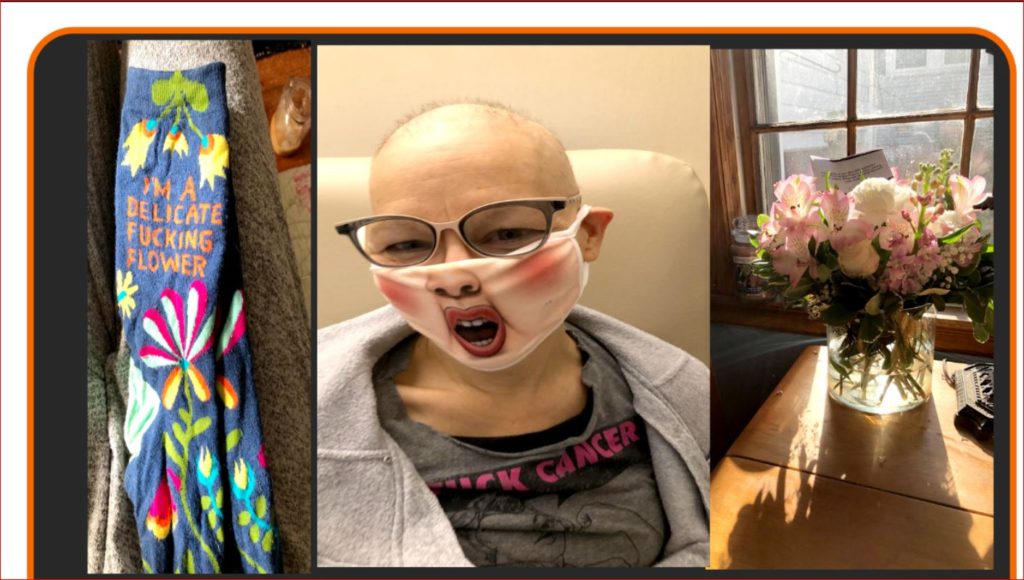
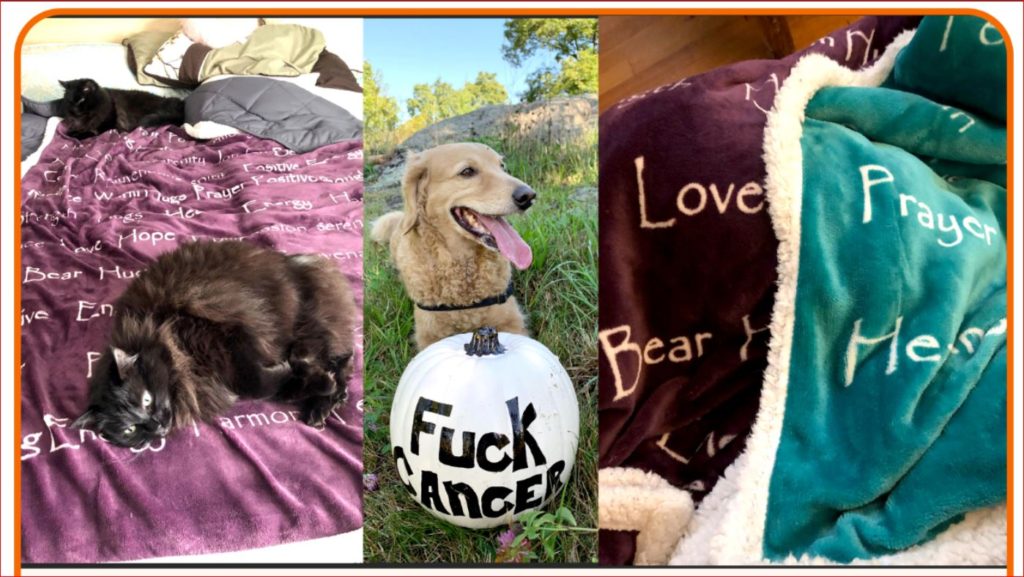
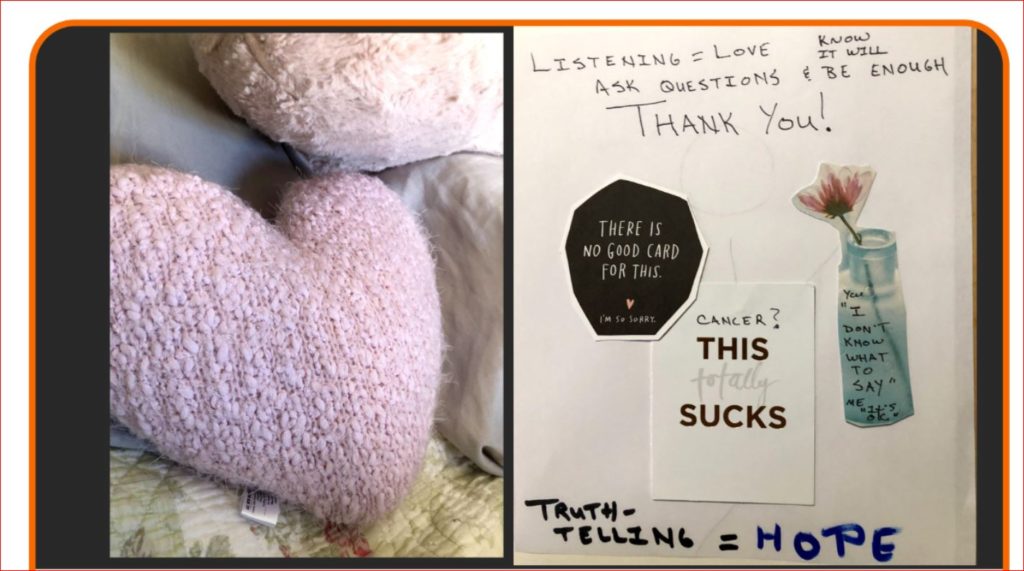
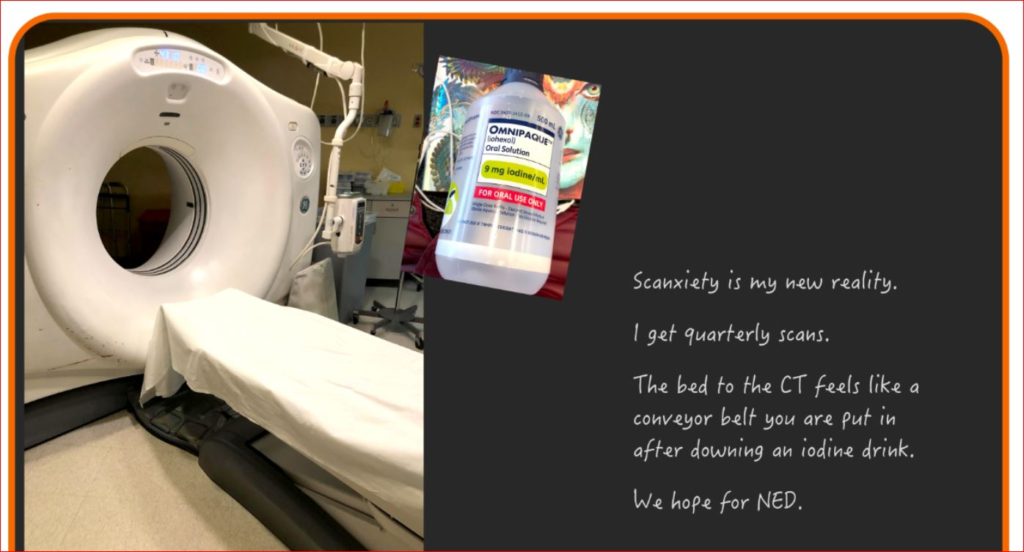
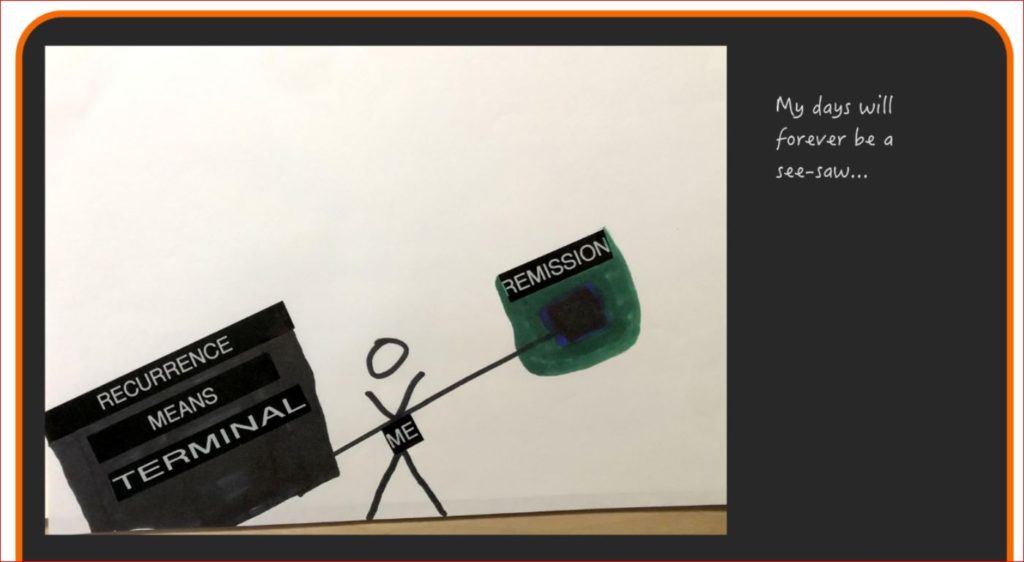
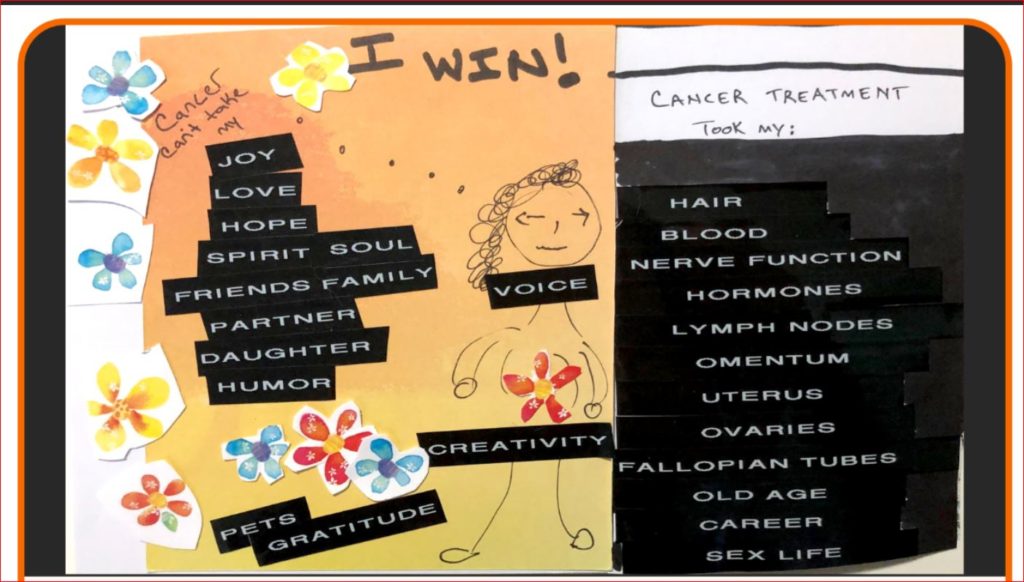
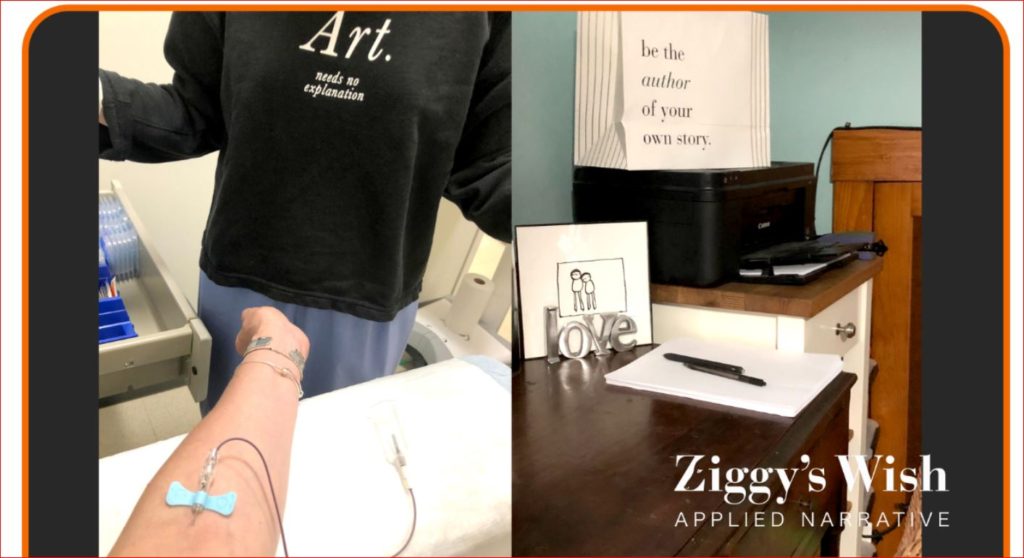
If you are touched by this topic, and the graphic storytelling approach to dealing with cancer, there’s a moving short film about this workshop below.
Tailored Treatments for Cancer: The Graphic Short Story Workshop from Ziggy’s Wish on Vimeo.
To read more about Ziggy’s Wish, go here. And to see the graphic stories produced by the workshop participants, go here.
You Matter Mantras
- Trauma sucks. You don't.
- Write to express not to impress.
- It's not trauma informed if it's not informed by trauma survivors.
- Breathing isn't optional.
You Are Invited Too & To:
- Heal Write Now on Facebook
- Parenting with ACEs at the ACEsConectionNetwork
- The #FacesOfPTSD campaign.
- When I'm not post-traumatically pissed or stressed I try to Twitter, Instagram & Pinterest.
[…] How Cancer Treatment Treated Me: A Graphic Story […]